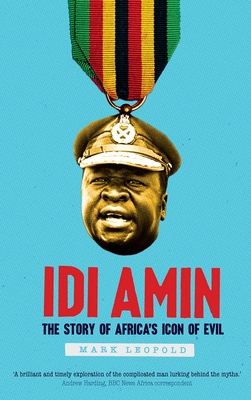Expedite your nonfiction book discovery process with Readara interviews, summaries and recommendations, Broaden your knowledge and gain insights from leading experts and scholars
In-depth, hour-long interviews with notable nonfiction authors, Gain new perspectives and ideas from the writer’s expertise and research, Valuable resource for readers and researchers
Optimize your book discovery process, Four-to eight-page summaries prepared by subject matter experts, Quickly review the book’s central messages and range of content
Books are handpicked covering a wide range of important categories and topics, Selected authors are subject experts, field professionals, or distinguished academics
Our editorial team includes books offering insights, unique views and researched-narratives in categories, Trade shows and book fairs, Book signings and in person author talks,Webinars and online events
Connect with editors and designers,Discover PR & marketing services providers, Source printers and related service providers

IDI Amin: The Story of Africa's Icon of Evil
Biography & Autobiography > Presidents & Heads of State
- Yale University Press
- Hardcover
- 9780300154399
- 9.3 X 6.1 X 1.4 inches
- 1.75 pounds
- Biography & Autobiography > Presidents & Heads of State
- (Single Author) Asian American
- English
Readara.com
Book Description
Sharply written, forensically researched. . . . A meticulous re-examination of Amin's life, producing a narrative packed with original evidence, and one that strives at all times to be scrupulously well balanced. --Paul Kenyon, The Sunday Times, London
Idi Amin began his career in the British army in colonial Uganda, and worked his way up the ranks before seizing power in a British-backed coup in 1971. He built a violent and unstable dictatorship, ruthlessly eliminating perceived enemies and expelling Uganda's Asian population as the country plunged into social and economic chaos.
In this powerful and provocative new account, Mark Leopold places Amin's military background and close relationship with the British state at the heart of the story. He traces the interwoven development of Amin's career and his popular image as an almost supernaturally evil monster, demonstrating the impossibility of fully distinguishing the truth from the many myths surrounding the dictator. Using an innovative biographical approach, Leopold reveals how Amin was, from birth, deeply rooted in the history of British colonial rule, how his rise was a legacy of imperialism, and how his monstrous image was created.
Author Bio
Before becoming an anthropologist, Mark Leopold worked as a journalist, researcher and consultant. In 1987, with Patrick Fitzgerald, he published Stranger On The Line: the Secret History of Phone Tapping (London, Bodley Head).
From 1991-1995 Mark was a Research Assistant at the University of Oxford Refugee Studies Program. After completing a Masters in Social Anthropology, and fieldwork in North Western Uganda, he gained his D.Phil in Social Anthropology from the University of Oxford in 2001.
His 2005 book based on this research was Inside West Nile: Violence, History and Representation on an African Frontier (London, Santa Fe and Kampala, James Currey).
Before starting as a Lecturer at Sussex in 2006, he taught social anthropology at the University of Oxford Institute of Social and Cultural Anthropology, and at Goldsmiths College, University of London.
Research
Mark Leopold's research focuses on the political and historical anthropology of Africa, particularly north east Africa (especially northern Uganda, southern Sudan and north east Democratic Republic of Congo).
Fieldwork in Arua district, north west Uganda, between 1995 and 1998, together with archival research in Uganda and the UK, has so far led to a book and a number of journal articles and book chapters. Mark's work addresses such issues as the causes and consequences of war and political violence, the relationship between past and present and that between representation and reality, concepts of masculinity, forced migration, the nature of border areas, and the role of the state and non-state organizations in contemporary Africa. Specific topics on which Mark has written include legacies of slavery in Sudan and Uganda, the role of northern NGOs in African conflict areas, and the relationship between local history writing and post-conflict reconstruction.
He is currently writing a biography of former Ugandan President Idi Amin (for Yale University Press), and is part of an EU-funded research project on conflict, water politics and climate change. He is also interested in the effects of recent oil discoveries in West and North West Uganda, and the role of the oil industry and other transnational factors in the recent war and current peacemaking process in southern Sudan, as well as in various aspects of the history of social anthropology. He has been awarded a Leverhulme Research Fellowship for one year from August 1 2010, to finish his book on Idi Amin.
Source: University of Sussex
Videos
No Videos
Community reviews
No Community reviews

